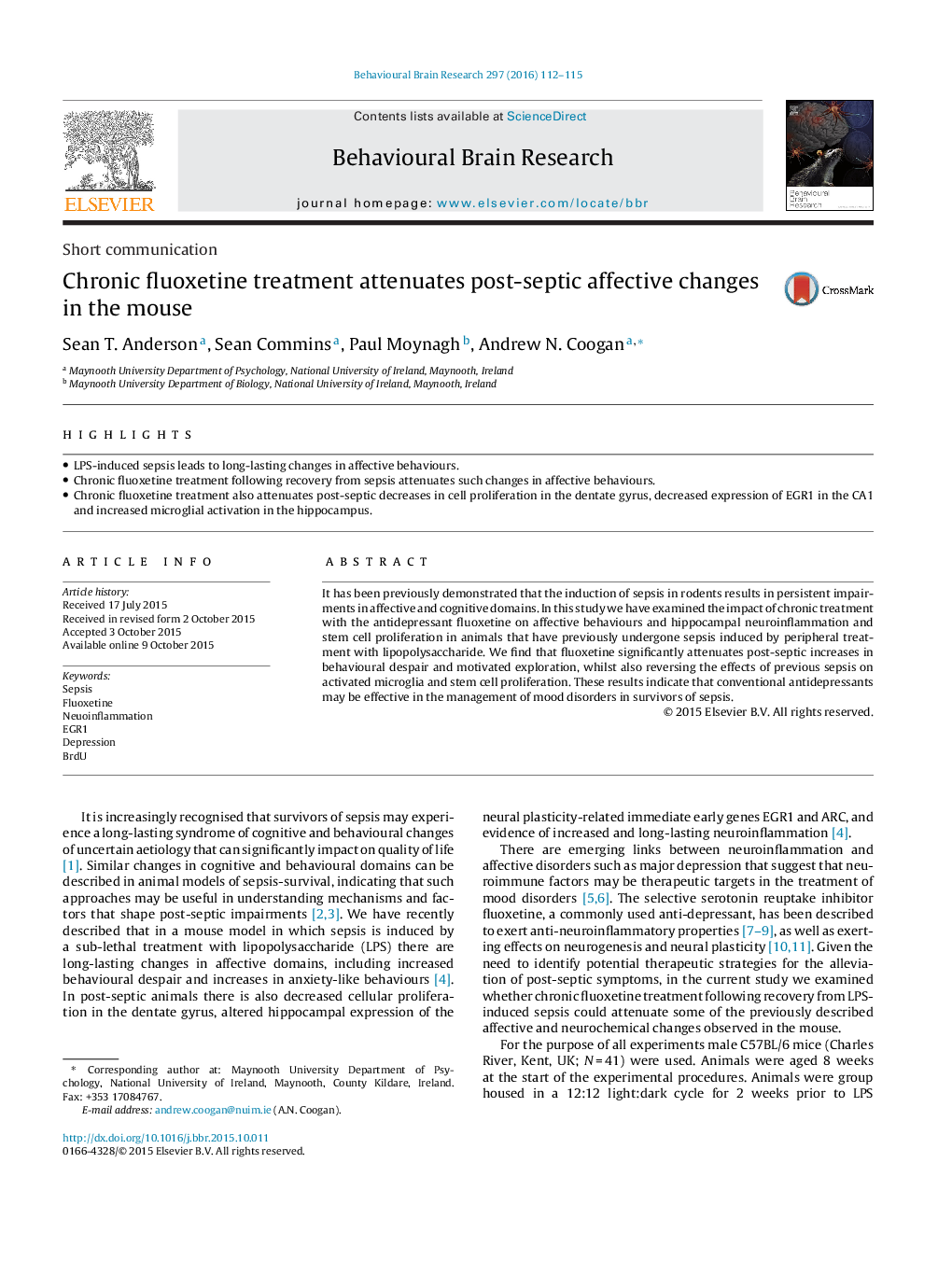| Article ID | Journal | Published Year | Pages | File Type |
|---|---|---|---|---|
| 6256445 | Behavioural Brain Research | 2016 | 4 Pages |
â¢LPS-induced sepsis leads to long-lasting changes in affective behaviours.â¢Chronic fluoxetine treatment following recovery from sepsis attenuates such changes in affective behaviours.â¢Chronic fluoxetine treatment also attenuates post-septic decreases in cell proliferation in the dentate gyrus, decreased expression of EGR1 in the CA1 and increased microglial activation in the hippocampus.
It has been previously demonstrated that the induction of sepsis in rodents results in persistent impairments in affective and cognitive domains. In this study we have examined the impact of chronic treatment with the antidepressant fluoxetine on affective behaviours and hippocampal neuroinflammation and stem cell proliferation in animals that have previously undergone sepsis induced by peripheral treatment with lipopolysaccharide. We find that fluoxetine significantly attenuates post-septic increases in behavioural despair and motivated exploration, whilst also reversing the effects of previous sepsis on activated microglia and stem cell proliferation. These results indicate that conventional antidepressants may be effective in the management of mood disorders in survivors of sepsis.
